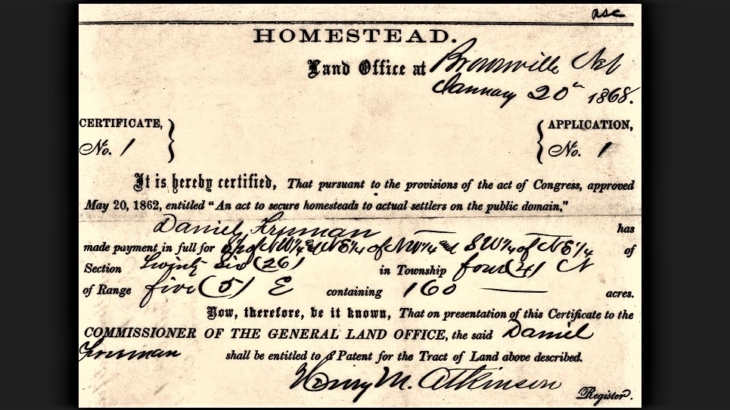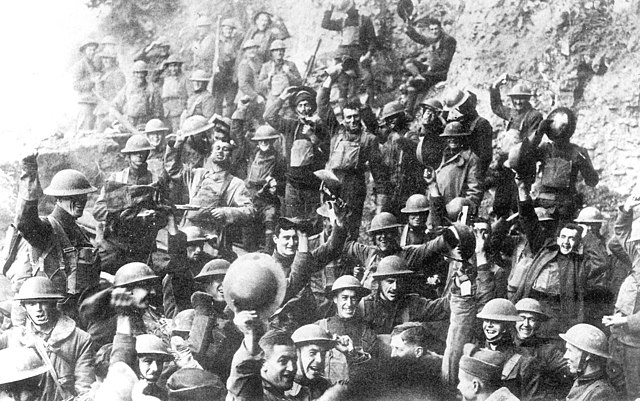
Essay Read By Constituting America Founder, Actress Janine Turner
“That is not a just government, nor is property secure under it, where arbitrary restrictions, exemptions, and monopolies deny to part of its citizens that free use of their faculties, and free choice of their occupations, which not only constitute their property in the general sense of the word; but are the means of acquiring property strictly so called.” – Property, an essay by James Madison, March 29, 1792
Americans are exceedingly fortunate in some regards. The founding generation that theorized about creating a government did not evaporate into thin air or disappear into classrooms after publishing a few papers or demonstrating for change. Instead, most of them engaged in practical politics. They were around to find the limits and implications of their theories. James Madison, as the primary author of the United States Constitution could have retired and lived the life of a hermit and still made it into our history books. He did not do that.
By the Spring of 1792 Madison was a congressman from Virginia, engaged in the messy horse-trading of practical politics. He was also actively engaged in describing how the underlying principles of our government interacted with the real world. He watched the beginnings of the ideological and partisan divisions between people who shared all of the same fundamental principles. He saw regions compete with regions and nations serve as both positive and negative examples for America. In that spirit, he wrote an essay on the subject of property published March 29, 1792.
Madison conceived of property rights in a way that was much broader, deeper, and more expansive than the mere protection of wealth or land. Understanding his conception is central to understanding the very nature of the American government. Unlike some later thinkers, Madison and the Founders did not consider the rights of property to be a “thing” that was separate, apart, held only socially, or distinct from all other rights of an individual. While that might seem like an inconsequential bit of political theory, the practical implications of this formulation were enormous and foundational to the idea that human beings could live prosperous lives at peace with one another.
If property rights were natural to all other rights, things like free market trade, industry, innovation, and competition were the consequences of the deeper foundational principles of the Founders—not their purpose. To put it another way, Madison and the Founders did not envision liberty in order to justify the free market or property rights; Madison merely recognized the implications of property rights in the real world. To pretend that our system of government could function without the protection of individual property rights would have seemed oxymoronic and absurd to the framers of our political institutions.
In the American system and as outlined by Madison, the same set of individual rights have both a private and public function. He understood that every right an individual holds has some manifestation in the physical world. Understanding that simple fact led him to a conclusion that was inescapable, profound, and should be obvious: Every right lived and breathed in its relationship to the rights of property. No just government could sever property rights from any of the natural rights held by any individual. This was not enough.
Because individuals exercise the rights of property in a social context, they depend on a reciprocal, peaceful recognition within a political system. A just system protected the rights of every individual. As Madison wrote, property, “…embraces every thing to which a many may attach a value and have a right, and which leaves to every one else the like advantage.”[1] Any right you have and anything you find valuable is defined as property. Because everyone has rights, everyone has property worthy of protection.
Property then, was more than simply money, wealth, land, or objects. Madison understood that one could not claim to have free opinions without being free from violence when communicating those ideas. One could not freely express religious belief and practice when personal safety and property were threatened. The freedom to choose where to work, what to work for, and what to do with the product of one’s work were inseparable. All were rights. All were inseparable from property.
To Madison, any pretended choice between the rights of property and any other right was a false dichotomy. The rights of property were inextricably linked to every other right and should be recognized and balanced in a peaceful constitutional order. As he concluded, “…a man is said to have a right to his property, he may be equally said to have a property in his rights.”[2] Protecting property rights – in this expansive understanding of property – was the very purpose of just government. There could be no other definition of justice beyond every individual peacefully having what they deserved to have while secure in their peaceful possession of all liberties. Because of this, Madison believed government ought only to interfere with property rights sparingly.
Any government that violated religious liberty with tests, taxes, or an imposed hierarchy would not be just. Any government that failed to enforce contract law, engaged in arbitrary property seizures, or allowed one class of people to oppress another would be violating the rights of conscience, which Madison called “the most sacred of all property.”[3] But he had a special ire for the regulated markets of the British mercantilist system and worried that America might follow their example.
Government itself could easily fall out of balance by imposing, “restrictions, exemptions, and monopolies” that would interfere with property rights.[4] Property was not secure when government encouraged one form of work or manufacturing over another. Such encouragement would be similar to an unjust tax designed to reward friends and punish enemies. He deplored the use of taxation as social policy and recognized the temptation to, “invade the domestic sanctuaries of the rich,” or taxation that would, “grind the faces of the poor.”[5] He understood that human beings always sought advantages for themselves and would try to use taxation to gain those advantages.
Leaders needed to be scrupulous in dealing with all forms of property–including the property that individuals hold in ambitions, religion, opinions, and labors. None should be taken from an owner without full compensation. If the United States wanted to maintain its legitimacy and serve as an example to the world, its government had to “equally respect the rights of property, and the property in rights….”[6] There could be no substitute for this formulation.
Human beings are infinitely complex. Part of Madison’s genius was his understanding of the practical application of rights based on how imperfect human beings lived in an imperfect world. Instead of theorizing about how to turn human beings into angels, Madison understood the complexity of human experiences and the relationship between the internal and the external world. He knew that politics can do many things, but it cannot do everything.
Of course Madison and the Founders believed in the principles of free market trade, industry, innovation, and competition. Every competition requires the peaceful execution of its rules or it could not be said to be a competition. The violent suppression of innovation or use of violence in directing labor was anathema to anything resembling a free life. If all of our rights have a manifestation in property, individuals must be able to buy, sell, withhold, cherish, and labor for property – broadly understood – as they see fit. To say that our Founders believed in a “free market” is to state nothing so plain as the Founders believed that people could live peaceful lives. One could not protect any fundamental rights without protecting the “property in rights.”[7] There is no other way.
 Stephen Tootle is a Professor of History at the College of the Sequoias in Visalia, California and Honored Visiting Graduate Faculty in History and Government at Ashland University in Ashland, Ohio. His writings have appeared in National Review, Presidential Studies Quarterly, The Claremont Review of Books, The Journal of the Gilded Age and Progressive Era, and other publications. He gives talks on politics and political history for the Ashbrook Center and the Bill of Rights Institute and is the co-host of The Paper Trail Podcast, a weekly public affairs podcast published by the Sun-Gazette.
Stephen Tootle is a Professor of History at the College of the Sequoias in Visalia, California and Honored Visiting Graduate Faculty in History and Government at Ashland University in Ashland, Ohio. His writings have appeared in National Review, Presidential Studies Quarterly, The Claremont Review of Books, The Journal of the Gilded Age and Progressive Era, and other publications. He gives talks on politics and political history for the Ashbrook Center and the Bill of Rights Institute and is the co-host of The Paper Trail Podcast, a weekly public affairs podcast published by the Sun-Gazette.
[1] https://teachingamericanhistory.org/document/property/
[2] Ibid.
[3] Ibid.
[4] Ibid.
[5] Ibid.
[6] Ibid.
[7] Ibid.
Click here for First Principles of the American Founding 90-Day Study Schedule.
Click here to receive our Daily 90-Day Study Essay emailed directly to your inbox.


 https://en.wikipedia.org/wiki/United_States_in_World_War_I#/media/File:US_64th_regiment_celebrate_the_Armistice.jpg
https://en.wikipedia.org/wiki/United_States_in_World_War_I#/media/File:US_64th_regiment_celebrate_the_Armistice.jpg